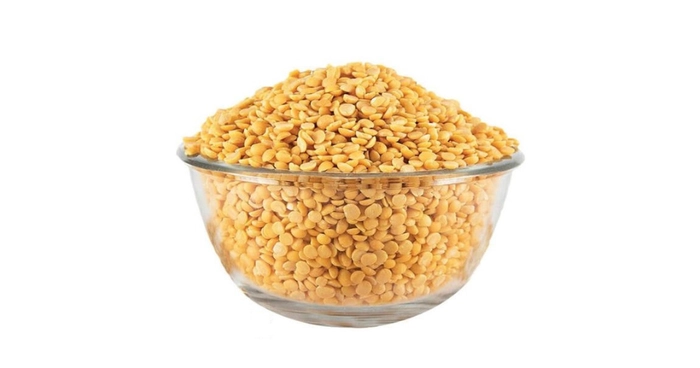Toor Dal: A Nutritional Powerhouse
Toor Dal, also known as Arhar Dal or Pigeon Pea, is a staple in Indian cuisine and is cherished for its versatility and health benefits. This yellow pulse, which is oval in shape, is not only a key ingredient in many traditional dishes but also a rich source of essential nutrients. In this article, we will explore the nutritional value, health benefits, recommended daily intake, and various uses of Toor Dal in daily life.
Overview of Toor Dal
Toor Dal is derived from the seeds of the pigeon pea plant, which is widely cultivated in tropical and subtropical regions. It is a significant source of protein, especially for vegetarians, and plays a crucial role in the diets of millions. The dal is typically cooked and served with rice or roti, and it can also be used in soups, stews, and salads.
Nutritional Value
Toor Dal is packed with essential nutrients. Here is the nutritional breakdown per 100 grams of cooked Toor Dal:
| Nutrient | Quantity Per 100g |
|---|---|
| Energy | 187 Kcal |
| Protein | 11.42 g |
| Total Fat | 3.08 g |
| Saturated Fat | 1.34 g |
| Carbohydrates | 29.76 g |
| Dietary Fiber | 14.3 g |
| Sugars | 1.21 g |
| Sodium | 273 mg |
| Potassium | 532 mg |
| Iron | 28% of RDI |
| Magnesium | 45% of RDI |
Toor Dal is rich in protein, dietary fiber, and essential vitamins and minerals such as iron, magnesium, and potassium. This makes it an excellent choice for maintaining a balanced diet.
Health Benefits
Toor Dal offers numerous health benefits, making it a valuable addition to any diet:
- High Protein Content: With around 22% protein by weight, Toor Dal is an excellent source of plant-based protein, essential for muscle growth and repair.
- Rich in Dietary Fiber: The high fiber content aids in digestion, helps maintain bowel regularity, and promotes a feeling of fullness, which can assist in weight management.
- Supports Heart Health: Toor Dal is low in fat and cholesterol-free, making it heart-friendly. Its potassium content helps regulate blood pressure.
- Aids in Weight Management: The combination of protein and fiber helps control appetite and may support weight loss efforts.
- Beneficial for Diabetics: With a low glycemic index of 29, Toor Dal is suitable for diabetics as it helps in managing blood sugar levels.
- Promotes Bone Health: The presence of phosphorus and calcium in Toor Dal contributes to stronger bones and teeth.
- Supports Pregnancy: High in folic acid, Toor Dal is beneficial for pregnant women as it supports fetal development and helps prevent birth defects.
- Rich in Antioxidants: The antioxidants present in Toor Dal help combat oxidative stress and may reduce the risk of chronic diseases.
Recommended Daily Intake
For adults, a daily intake of 1 to 1.5 cups of cooked Toor Dal is generally recommended. This amount provides sufficient protein and essential nutrients without overloading the digestive system. However, individual dietary needs may vary based on factors such as age, gender, and activity level.
Uses of Toor Dal in Daily Life
Toor Dal is incredibly versatile and can be incorporated into various dishes:
- Dal Tadka: A popular dish where cooked Toor Dal is tempered with spices, ghee, and herbs.
- Sambar: A South Indian lentil stew made with vegetables and spices, often served with rice or dosa.
- Khichdi: A comforting one-pot meal made with rice and Toor Dal, often flavored with spices and vegetables.
- Salads: Cooked and cooled Toor Dal can be added to salads for an extra protein boost.
- Soups and Stews: Toor Dal can be blended into soups for added creaminess and nutrition.
- Snacks: Roasted Toor Dal can be enjoyed as a healthy snack or added to trail mixes.
In addition to these culinary uses, Toor Dal can also be ground into flour for making pancakes or used as a thickening agent in various dishes.
Conclusion
Toor Dal is not just a staple food item; it is a nutritional powerhouse that offers numerous health benefits. Its rich protein and fiber content make it an excellent choice for vegetarians and anyone looking to maintain a healthy diet. Incorporating Toor Dal into your daily meals can help support overall health and well-being.


